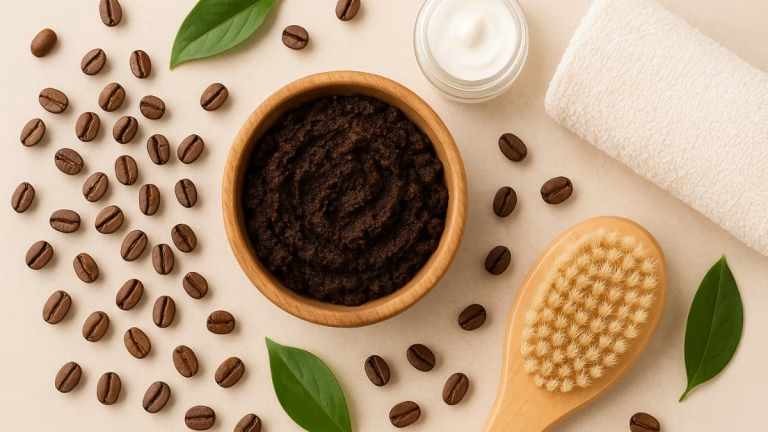
Have you ever wondered if your daily coffee cup could secretly dehydrate you? It’s a common concern, especially for those of us who can’t resist the allure of a warm, aromatic brew. With the rising popularity of decaf coffee, many coffee lovers are turning to this caffeine-reduced alternative to enjoy their favorite beverage without the potential downsides of caffeine. This blog post will dive into the science behind coffee’s diuretic effects, uncover the truth about decaf coffee and hydration, and provide practical tips for coffee enthusiasts who want to stay hydrated while indulging in their coffee routine.
What is Diuretic ?
Okay, before we get into the decaf debate, let’s discuss diuretics. In simple terms, diuretics make your body produce more urine, which can affect your fluid balance. They work by stimulating the kidneys to release more sodium, which draws water from your blood and increases urine output.
Think of diuretics like tiny little plumbers in your kidneys, helping to flush out excess water and sodium from your system! This can help manage conditions like high blood pressure and edema (swelling caused by excess fluid).
Now, diuretics come in different forms:
Caffeine, the star player in regular coffee, is known to be a mild diuretic. It works by messing with specific receptors in your kidneys called adenosine receptors. This interference can lead to decreased sodium reabsorption, meaning more sodium (and water) is in your urine.
But hold on, before you swear off coffee altogether, remember this: the diuretic effect of caffeine varies from person to person. Factors like genetics, how much coffee you usually drink, and your overall hydration status all play a role. Some folks might be more sensitive to caffeine’s diuretic effects, while others may not notice much difference.
Is decaf coffee a diuretic?
Let’s clear up some confusion about decaf coffee. Decaf doesn’t mean completely caffeine-free! This means the coffee beans have undergone a unique process to remove most of the caffeine. The FDA even has a rule: to be labeled “decaf,” coffee must have at least 97% of its original caffeine removed.
Now, there are a few different ways to decaffeinate those beans:
So, how much caffeine are we talking about? A regular cup of coffee packs around 95-165 mg of caffeine, while a decaf cup only has a tiny 2-5 mg. That’s a huge difference! But it’s worth noting that even decaf has a teeny bit of caffeine, so if you’re extremely sensitive to it, you should keep that in mind.
The Science of Decaf and Diuresis
For a long time, coffee had a bad reputation as a dehydrating beverage. Early studies and common beliefs often categorized coffee as a diuretic, leading to recommendations to avoid it for optimal hydration. This perception stemmed from the known diuretic effects of caffeine.
However, recent research is changing how we think about coffee and hydration, particularly regarding decaf. Numerous studies have demonstrated that decaf coffee has a minimal diuretic effect, especially in people who drink coffee regularly.
Here are some key findings from these studies:
These findings suggest that decaf coffee’s effect on hydration is comparable to water’s and does not lead to significant fluid loss. The minimal amount of caffeine in decaf is unlikely
to trigger a noticeable diuretic response.
However, it’s crucial to remember that moderation is key with any beverage. While decaf coffee may not dehydrate you, drinking excessive fluid can disrupt your body’s fluid balance.
It’s also important to remember that hydration is a complex process influenced by various factors beyond coffee consumption. Your overall fluid intake, diet, activity levels, climate, and health conditions all play a role in maintaining proper hydration.
What are the benefits of decaf coffee?
Put those dehydration worries to rest! Scientific research overwhelmingly suggests that decaf coffee, when enjoyed in moderation, does not threaten hydration. So, you can continue sipping on your favorite decaf brew without fearing those dreaded diuretic effects.
Let’s debunk some common myths about decaf and hydration:
Here are some practical tips to stay hydrated while enjoying your decaf delights:
Remember: Hydration is a whole-body affair. Factors like diet, exercise, sleep, and overall health also significantly maintain fluid balance. So, listen to your body, stay mindful of your fluid intake, and enjoy your decaf guilt-free!
Enjoying Decaf Coffee
You can savor your decaf coffee without worrying about dehydration. Scientific research has debunked the myth that decaf coffee is a diuretic. Decaf coffee does not dehydrate you when enjoyed in moderation and can be a part of a healthy lifestyle. This is because the decaffeination process removes most of the caffeine, which is the component in regular coffee responsible for its diuretic effect.
To make the most of your decaf experience, choose high-quality beans that have been decaffeinated using safe and effective methods, like the Swiss Water Process. Remember that moderation is key for any beverage, even decaf. Drinking excessive amounts of fluid can disrupt your body’s fluid balance. Staying hydrated is crucial for overall well-being, so balance your coffee intake with plenty of water.
Decaf coffee can be a delicious and guilt-free way to enjoy your coffee ritual without the jitters or sleep disruptions caused by caffeine. So go ahead, brew yourself a cup, and relish the flavor and aroma of your favorite decaf blend, knowing that you can stay hydrated and healthy while doing so!
Let’s keep the conversation brewing! Share your thoughts on decaf coffee in the comments below. Did you make the switch? What’s your favorite brewing method? What questions do you still have?
Frequently asked questions
Does Decaf Coffee Taste Different?
Gone are the days of bad-tasting decaf coffee. Good quality decaf coffee today should taste very similar to its caffeinated counterpart. However, instant coffee or blends that use Robusta beans tend to have the most noticeable flavor difference, because they start with a lower-quality product.
Is Decaf Coffee a Diuretic?
No, decaf coffee is not a diuretic. The small amount of caffeine remaining in decaf coffee (2-15mg) doesn’t have the same diuretic effect as regular coffee (100mg). The diuretic effect of coffee comes from caffeine.
Does Decaffeinated Coffee Keep You Awake?
No, decaffeinated coffee should not keep you awake. Decaf coffee has had most of the caffeine removed, so it does not have the same stimulating effect.
Is Decaf Coffee Better for You?
Both decaf and regular coffee have similar health benefits. Decaf may be a better choice if you are sensitive to caffeine. Decaf coffee won’t cause anxiety, restlessness, and headaches that regular coffee might.
Does Decaf Coffee Dehydrate You?
No, decaf coffee does not dehydrate you. The diuretic effect of regular coffee does not cause dehydration, and the diuretic effect of decaf coffee is much milder.
How Much Caffeine in Decaf Coffee UK?
Decaf coffee is not completely caffeine-free. In the UK, decaf coffee contains between 2 – 15 mg of caffeine per cup . Regular coffee contains about 100mg of caffeine.
Happy sipping!






